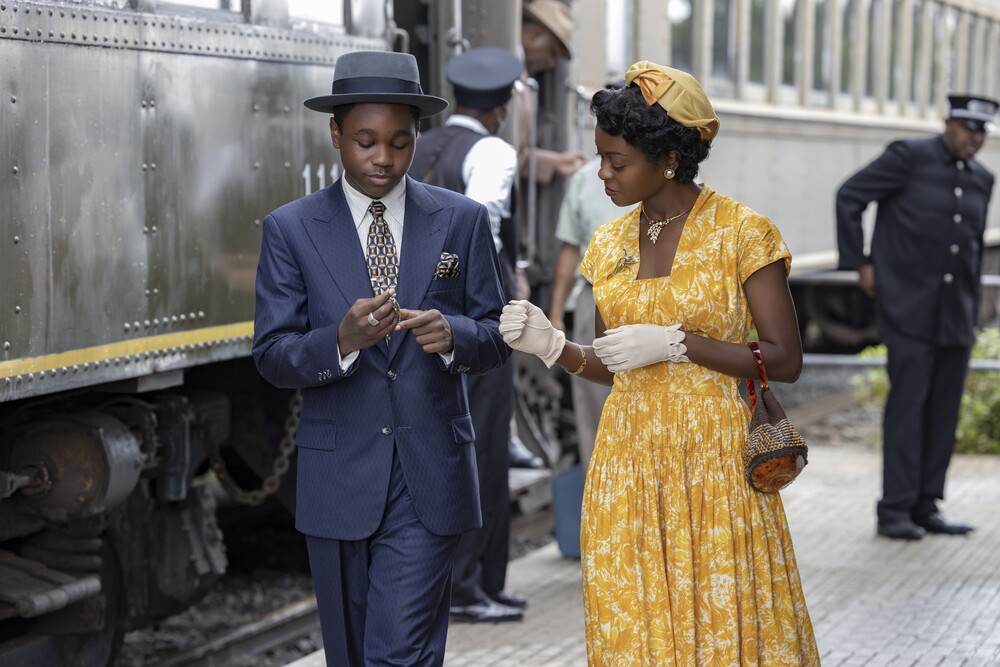Till

Jalyn Hall and Danielle Deadwyler star in TILL. (Photo: Orion Pictures)
Its title might suggest a biopic, but Till is less concerned with fleshing out the details of Emmett Till’s life than exploring the widespread ramifications of his tragic death.
Modulating outrage and compassion without resorting to heavy-handed cliches, this gut-wrenching but inspiring historical drama prompts a fresh look at a horrific episode of Deep South racism that still resonates more than 70 years later.
A riveting and deeply felt performance by Danielle Deadwyler (The Harder They Fall) brings depth and conviction to a surface-level retelling that too often plays it safe.
Emmett (Jalyn Hall) is an endlessly charming but awkwardly naïve 14-year-old preparing to travel by train from Chicago to rural Mississippi to visit relatives in the summer of 1955.
His mother, Mamie (Deadwyler), is apprehensive and warns him about his safety. Emmett’s grandmother (Whoopi Goldberg), however, says the experience will be good for the youngster.
While staying with a great-uncle (John Douglas Thompson), Emmett and his cousins at one point loiter in front of a convenience store. He flirts and whistles at a white clerk (Haley Bennett), who retrieves her gun in response. A few nights later, Emmett is kidnapped and later found dead in the river from an apparent lynching.
Mamie’s intense sorrow eventually fuels a fierce sense of determination for personal and social justice. “The whole world needs to see what happened to my son,” she insists.
Of course, given the environment, the odds are stacked against Mamie as she perilously heads to Mississippi, where she joins forces with young civil-rights activist Medgar Evers (Tosin Cole) and testifies at the murder trial.
After an uneven start, the film gains potency with a harrowing and deeply disturbing depiction of Emmett’s abduction and its aftermath — providing another vivid and haunting reminder of the horrors of segregation and Jim Crow laws.
As directed by Chinonye Chukwu (Clemency), the film benefits from richly detailed period re-creation. Deadwyler’s expressive portrayal conveys the anguish and helplessness of an entire grieving race marginalized by oppression and burdened by a legacy of systemic hatred.
The screenplay too eagerly embellishes some of the historical specifics to maximize the sentimental impact, and the overbearing music score doesn’t help.
Till is most powerful in its quieter, more intimate and reflective moments. Ultimately, it’s a worthwhile tribute to Mamie’s resilience and fortitude under the harshest of circumstances, which should never be forgotten.
Rated PG-13, 130 minutes.